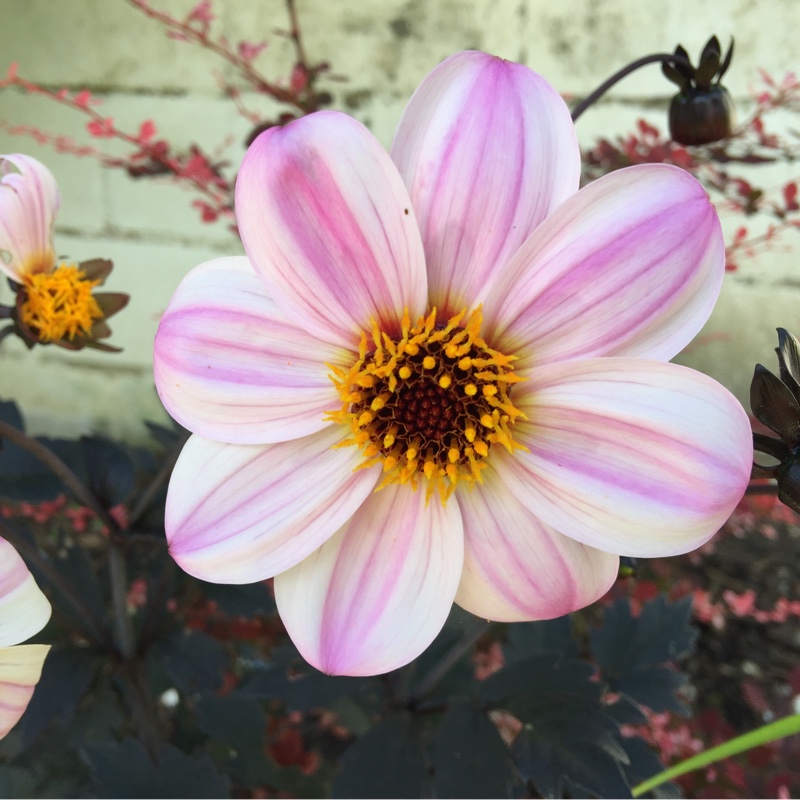
Dahlia 'Purple Haze'
Dahlia 'Purple Haze'
Flower petals are magenta-pink, set against the backdrop of dark green foliage. The flowerheads are held on long, red-flushed stems, so they are excellent for cutting. The border dahlia is more imposing than the bedding dahlia and generally grows taller often with much larger blooms. Always dig in organic matter before planting out and dead head regularly to prolong flowering. Dahlias are thirsty and hungry plants. Water in dry weather and occasionally feed with liquid fertiliser. A well drained fertile soil is needed as is a sunny spot.
Contributed by @Rosa727
-
Full sun
-
Frequent watering
-
Not Frost hardy
-
Rich and free draining
Common name
Dahlia 'Purple Haze'
Latin name
Dahlia 'Purple Haze'
type
Tuber
family
Asteraceae
ph
5.0 - 7.0 Acid - Neutral
Plant & bloom calendar
-
Best time to plant
-
When the plant will bloom
full grown dimensions
 1.00 M
1.10 M
1.00 M
1.10 M
Dahlia 'Purple Haze'
Flower petals are magenta-pink, set against the backdrop of dark green foliage. The flowerheads are held on long, red-flushed stems, so they are excellent for cutting. The border dahlia is more imposing than the bedding dahlia and generally grows taller often with much larger blooms. Always dig in organic matter before planting out and dead head regularly to prolong flowering. Dahlias are thirsty and hungry plants. Water in dry weather and occasionally feed with liquid fertiliser. A well drained fertile soil is needed as is a sunny spot.
Propogation by cuttings
From Late Winter TO Early Spring
Take cuttings from tubers which have started into growth in a greenhouse or frame from late winter onwards. The ideal temperature is 16C. When the young growths are 3 inches long, remove them from the tuber with a sharp knife making sure you leave a 'stump' for new growth to form. Remove the lower pair of leaves from the cutting and dip in rooting powder. Insert the cuttings around the edge of pots of loam, peat and sharp sand in equal measures. Water thoroughly and place in a propagating frame at 16C. Keep moist and shade from sunlight. After 3 or 4 weeks, once rooted, pot singly in 3 inch pots until they are wanted for planting.
Planting Outdoors Spring
From Early Spring TO Late Spring
Plant the un-sprouted tubers in early spring, at least 4 inches deep. Plant rooted cuttings and sprouted tubers during the late spring but if the weather is cold and wet, wait for conditions to improve.
Flowering Season
From Mid Summer TO Mid Autumn
Border dahlia will flower from mid-summer through to autumn or the arrival of the first frost. The season can be prolonged by regular dead heading.
Propogation by division
From Mid Spring TO Mid Spring
Division of the tubers is the simplest method and will produce plants the same as the parent. In mid-spring, divide the tubers with a sharp knife ensuring that each division has an undamaged eye. Dust the cut parts with flowers of sulphur to prevent fungal attack. They can now be planted not less than 4 inches deep.








